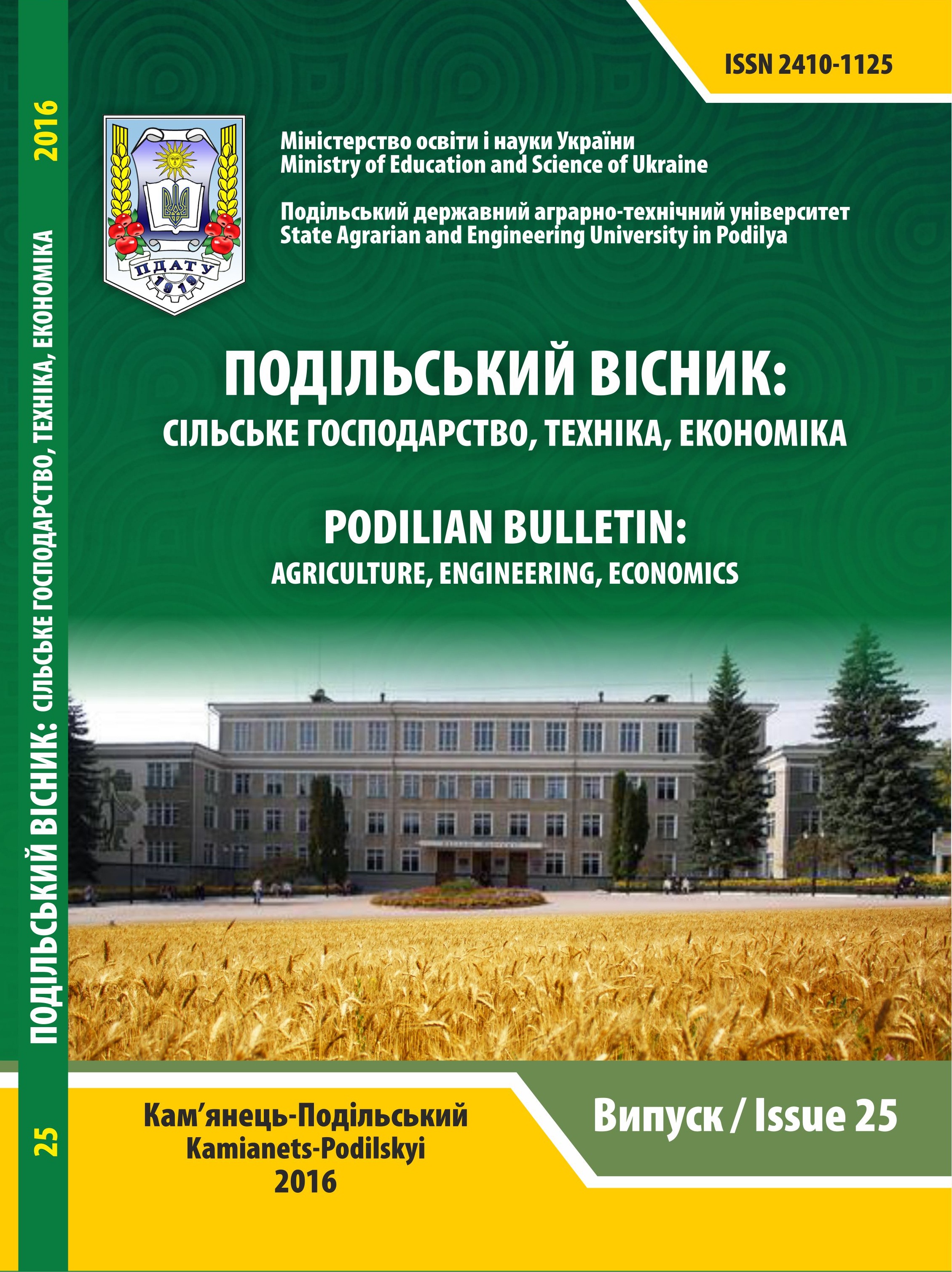The Reproductive Ability Indicators and Their Influence on the Cows’ Milk Yield
Keywords:
milk yield, line, the age of the first calving, service-period, between calving period, the coefficient of reproductive abilityAbstract
The aim of research was to study an indicators reproductive cows’ ability of Podilian mill type of the Ukrainian black and white dairy cattle and their impact on expectations. Was studied a milk yield of the 305 days of the first lactation; age of the first calving; between parturition period; the length of service period and the coefficient reproductive ability the Ukrainian black and white dairy cattle (the last 10 years; n = 534). It is established that milk yield; to some extent; dependents on the age of the first calving; between parturition period; the length of service period and the coefficient reproductive ability. The milk yield for the first cows’ lactation is increased with increasing duration of service period and the period between I and II calving and with decreasing age of the first calving and reproductive ability factor. The age of the first cows’ calving is not less than 30 months. The relatively late age of first calving cows in this sector is caused by the growth characteristics; development and the body weight of heifers at first insemination; which is not less than 400 kg. It is proved the possibility of increasing the milk yield firstborn in their younger age calving and at the same time the simultaneous reduction of non-productive period growth. It is recommended to provide a sufficiently high level of growing heifers; especially during the intense puberty and reduce the age of first calving; which will increase the output of calves per 100 cows; to reduce the cost of cultivation and will reduce the generation interval between generations; which will increase the rate of genetic progress and more productive longevity of animals.References
Honchar, O. F. & Sotnichenko, Iu. M. (2012). Vidtvorna zdatnist koriv u protsesi zrostannia yikh henetychnoho potentsialu za nadoiem [The reproductive ability of cows during the growth of their genetic potential]. Rozvedennia i henetyka tvaryn, [Animal Breeding and Genetics], 46, 207-209.
Kalchuk, L. A. & Popadiuk, T. S. (2014). Produktyvni ta vidtvorni yakosti koriv-pervistok riznoho pokhodzhennia [Productive and reproductive qualities of cows, heifers of different origin]. Visnyk Sumskoho natsionalnoho ahrarnoho universytetu [Bulletin of Sumy National Agrarian University. Series: Animal Husbandry], 2 (2), 52-55.
Piddubna, L. M. (2014). Molochna produktyvnist ta vidtvorna zdatnist koriv ukrainskoi chorno-riaboi molochnoi porody providnykh plemzavodiv pivnichno-poliskoho rehionu [Milk yield and reproducible ability of cows Ukrainian red-speckled leading dairy breed breeding plant north of Polissya region]. Visnyk Sumskoho natsionalnoho ahrarnoho universytetu [Bulletin of Sumy National Agrarian University. Series: Animal Husbandry], 7, 55-58.
Plokhynskyi, N. A. (1970). Byometryia [Biometrics]. Moskow : Yzd-vo MHU.
Fedorovych, V. V. & Babik, N. P. (2015). Zalezhnist molochnoi produktyvnosti koriv airshyrskoi porody vid pokaznykiv vidtvoriuvalnoi zdatnosti [The dependence of the milk production of Ayrshire breed cows indicators of reproductive capacity]. Tekhnolohiia vyrobnytstva i pererobky produktsii tvarynnytstva [Technology of production and processing of livestock products], 1, 79-84.
Fedorovych, Ie., Shcherbatyi, Z. & Bondar, P. (2014). Vplyv pokaznykiv vidtvornoi zdatnosti na molochnu produktyvnist koriv [Impact indicators on reproductive ability of cows milk production]. Tvarynnytstvo Ukrainy [Livestock Ukraine], 2, 38-41.
Sharapa, H. S., & Kuzebnyi, S. V. (2015). Vidtvorna zdatnist i produktyvnist koriv novykh molochnykh pored [Reproductive and performance of new cows dairy breeds]. Rozvedennia i henetyka
tvaryn [Animal Breeding and Genetics], 50, 225-229.
Downloads
Published
How to Cite
Issue
Section
License
Copyright (c) 2019 Podilian Bulletin: Agriculture, Engineering, Economics

This work is licensed under a Creative Commons Attribution-NonCommercial 4.0 International License.
Authors contributing to Public Policy and Administration agree to publish their articles under a Creative Commons Attribution-NonCommercial 4.0 International (CC BY-NC 4.0) License, allowing third parties to share their work (copy, distribute, transmit) and to adapt it, under the condition that the authors are given credit, and that in the event of reuse or distribution, the terms of this licence are made clear.



